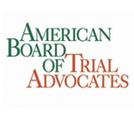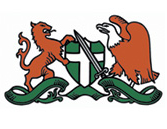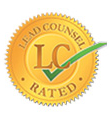Multi-vehicle accidents have severe effects on all the involved parties. Though the National Highway Traffic Safety Administration (NHTSA) 2020 report shows a 1.2% decrease in road fatalities compared to 2018, multi-vehicle accidents are still high on the list of fatal road accidents in California.
Most multi-vehicle accidents are chain reaction accidents that involve the collision of more than two vehicles. These accidents are also known as pile-ups. They happen when one car hits the rear of another, causing it to ram into another car in front. It is advisable to contact a car accident attorney for assistance if you are involved in a multi-vehicle accident.
What You Should Do After A Pile-up Accident in LA, California
Many multi-vehicle accidents occur on major highways, with the involved vehicles being at high speed. These high speeds lead to more fatal injuries, as several motor vehicles collide during the accident. These, in turn, mean more casualties as drivers and even passengers will receive multiple injuries. It is vital for any person involved in a multi-vehicle accident to seek immediate medical assistance. Once you are sure about your safety, it is essential to observe the following:
-
You Should Seek Immediate Medical Assistance
It is important to have a personal medical check-up after an accident, even if you feel alright. You may end up feeling some injuries once the adrenalin has worn off. At other times, you may suffer from internal injuries that need immediate medical assistance.
-
Remain At The Scene of theAccident
It is advisable to stay at the accident scene until law enforcement officers show up unless you are injured and require medical assistance. If you leave the accident scene, you may end up facing California’s hit and run charges. Hit and run charges are a serious offense that could lead to an imprisonment period of up to 12 months or pay $10,000 in fines. The sentence for a hit and run depends on the accident’s severity and death in the accident.
If the accident leads to property damage, the law allows you to leave the accident site provided you identify yourself to the other involved parties. If you don’t identify yourself or leave the accident site, you may end up facing misdemeanor charges on hit and run and end up paying $1,000 in fines or spending six months of your time in jail.
-
Ensure your Safety and That of Other Road Users
Your safety and that of other road users should always come first. With this in mind, you should move your car somewhere safe if you think it prudent to move it. Multi-vehicle accidents sometimes occur due to other vehicles hitting a vehicle involved in an accident and blocking the road.
If the accident results in someone’s death or severe injuries, it’s advisable to leave the car where it is and wait for the police. If moving the vehicle from the accident scene will pose a great danger to other road users, you should leave it and wait for the patrol police to arrive at the site.
-
Note Down the Information of Other Vehicles
After you have ensured your safety and that of other road users, have medical personnel check on you and other injured people; you should then take down the following information:
- Takedown the license numbers of the vehicles involved in the accident.
- If you can, take the other vehicle's VIN (Vehicle Identification Number).
- The color, make, and model of the vehicles involved in the accident.
California DMV requires the above information when you report an accident.
-
Ask to Take the other Drivers Contact Information
It is essential to exchange your contact information with the other drivers involved in the multi-vehicle accident. Ask the other drivers for their insurance card, driver’s license, and registration information. Take pictures of these documents or ensure to record the numbers, if you can, take the information from any eyewitnesses.
In case of an accident, always share your contact information regardless of who is at fault. Once law enforcement officers arrive at the scene, take the law officer’s name as well, this is important, especially to your insurance company.
-
Never Admit the Extent of your Injuries to the Other Drivers
You should never tell the other drivers if you are hurt or not. Sometimes you may feel alright after an accident, but later on, you develop complications. If you had said to the other drivers that you were unhurt, their insurance company may use your words against you and deny your claim later.
If the other parties ask you how you feel, let them know that you will seek medical assistance to verify your status and avoid lying to them, which may come back and hurt your case.
-
Never Admit Fault
In any accident, never admit fault even when you think the accident is your fault. California is a comparative law state, which means that the other party may have contributed to the accident, even if it is by a smaller margin.
After an accident, do not apologize to the other driver. Their insurance company may take your apology to mean you are at fault during the accident and use it to deny you from receiving any compensatory damages from them.
In case the other drivers insist that you are at fault for the accident, kindly ask them to give your insurance provider a call.
-
Take Pictures of the Accident Site
Take a picture of the accident site, the vehicles involved, any injuries, property damage, and the accident angle; ensure that you take these pictures from a safe distance. These pictures will come in handy and help your attorneys and insurance company determine who is at fault during the accident.
Photo evidence would protect you if the other involved parties claim that you were responsible for damages on their vehicle if the said damage was received later on. If you have to leave the accident site to receive medical attention, you can request a friend to take pictures of the site or return to the area immediately after a medical personnel checks on you.
-
Record the Events of the Accident Immediately
It is crucial to record the accident as you remember it as soon as possible; note everything you remember, however trivial it may seem to you. It is critical to make a record as detail may fade as time passes by. Some of the points that you should write down include the following :
- The date and time when the accident took place,
- The direction that each vehicle was taken,
- Traffic light colors if they were visible,
- Your car’s speed, and the estimated rate of the other vehicles,
- The state of the roads, for example, if the road has some potholes.
-
Take Images of your injuries
You can keep a record of your injuries by taking pictures using your phone, and if you are not in a position to, request someone else to take the pictures using your phone.
If there are some medical personnel, you can request them to take pictures of your injuries while taking care of you.
Write down a list of where you are hurting as soon as possible. Remember that the more records of your documented injuries; you increase, the more chances for your insurance company or personal injury attorney to make a substantial claim for you.
-
Make a Report with the California Department of Motor Vehicle (DMV)
California requires its residents to report an accident with DMV within ten days if they were in an accident where:
- Someone died,
- Someone was injured,
- The accident led to property damage exceeding $1,000.
It is advisable to make a report when you are unsure if the above took place, especially when you intend to file a claim with your insurance provider.
You should report an accident with the California DMV to avoid having your driver’s license suspended for one year.
-
Report the Accident to the Insurance Company
You should notify your insurance provider of an accident immediately it takes place so that you can start the process of laying your insurance claim. The fear of having your insurance rates go up may hinder you from reporting, but remember that California prohibits insurance companies from increasing insurance rates if you are not at fault for the accident.
It is essential to report an accident since the other drivers may register it with their insurance providers, a situation that. When you contact any insurance provider, whether it’s your provider or the insurance company for the other involved drivers, please ensure to do the following:
To be Polite and Calm
After you are involved in an accident, you may be overwhelmed by the events if you are at fault or not. You should calm down before placing a call to the insurance company and remain calm as you report the accident. Sometimes the insurance adjuster may be insensitive and ask you a question that may set you off. If this happens, you should answer them politely and ensure that you are calm. Being polite never hurts anyone, and sometimes your calmness combined with politeness may gain you the goodwill of the insurance adjuster. You want the adjuster to handle your claim promptly, or sometimes to believe in your point of view, which may be hard to believe. Earning the insurance adjuster’s goodwill then plays a crucial role in the outcome of your claim.
Know the Identity of the Contact Person At the insurance company
When you make your call to the insurance company, make sure you know the identity of the person you are speaking with, this should include details like their name, their address, and their telephone numbers. You should also have the details of the insurance company they are representing.
Offer Relevant Information Only
When you call the insurance adjuster, you should give them your details and give only the relevant ones like your full name, where you work, your address, or telephone number. Do not explain anything relating to your source of income or your work. Insurance companies may use any information you offer against your claim; therefore, you should be careful to offer minimal personal information.
Do Not Give The Insurance Company Details About the Accident
Kindly ensure to provide the most basic facts about the accident like the accident, the place where it occurred, the type of vehicles involved in the accident, and identify any eyewitnesses. The insurance adjuster may ask you for a statement on how the accident took place. It is advisable to decline to give them any statement but offer to give it right as the investigations on the accident are still ongoing. You can later send them your statement attached to your personal injury claim.
Do Not Offer Details Regarding your Injuries
When the insurance asks about your injuries, try as much as possible to avoid giving a detailed description of your injuries. You may give them a list of your injuries, and later on, you develop some complications, which the insurance company may deny later on. If they ask about your injuries, tell them that you are undergoing treatment.
Let the Insurance Company your Call is Meant to Provide Basic Information
When you make your first call to the insurance company, ensure they know you are only providing basic information on the accident and nothing more. Let them know you are not to discuss anything in detail yet. Some adjusters will try to convince you to settle, and in their endeavor, they can become bothersome. It’s advisable to set the limit for your conversation from the word go. If you engage them in long phone conversations, they may use the information you provide against you later when you make your claim. Let them know you will provide details later on after the investigations are complete and through your treatment.
Do Not Let Them Make you Settle Immediately
Most insurance adjusters will try to make you settle during your first phone call. They do this in the hope of making you settle for a smaller amount than you are entitled to before you can take note of the extent of your injuries and before you pursue a personal injury claim. You may think you are saving time by receiving compensation without following the full process, but you may end losing a lot of money by doing this. When it comes to insurance claims, it’s essential to have the patience to receive the full compensation that your damages are worth.
Do Not Allow the Insurance Provider to Record your Conversation
During your phone call, the insurance adjuster may casually request to record your conversation and never agree to have your conversation recorded. You might say something that will affect your claim later on. You should note that the insurance adjuster can not record your conversation without your permission. Tell them that you will submit a written statement later on once you have had enough time to think about the accident and the investigations are over. Remember, recorded statements carry much wait, and you can never un-say something that’s already recorded.
Have A Pen And Paper As you Make the Call
it’s important to take notes during the phone conversation with the insurance adjuster. Write down the information they ask you for and any request that you make from them. This will come in handy later on, and it will ensure that you do not forget any important point regarding the claim you discussed with the adjuster.
An investigator will use the following to determine who is at fault in a multi-vehicle accident:
-
Negligence
Negligence is the failure to take responsible actions towards other road users. The investigator will determine if the driver’s negligence actions led to the accident.
-
Liability
An investigator will determine who is responsible for the actions which led to the accident.
-
Proximate cause
The investigation will determine the actions that led to the accident.
Multi-vehicle accidents involve many variables that make it difficult to determine who is at fault for the accident. It is challenging to determine who the cause of the accident is; your investigator will need to answer questions like who was driving under the influence of alcohol and drugs, which driver was on the phone while going, and so forth.
Your investigator will need to view the police report and other evidence available on the accident site. The aim of considering the evidence and the police report is to determine if the driver was under arrest or has a ticket for:
- Drunk driving,
- Drug possession,
- Lack of valid insurance cover and a driving license,
- Reckless driving.
Contact a Personal Injury Attorney Near Me
California allows drivers and other accident victims two years from the accident to file their injury claims. However, it is advisable to immediately contact an experienced personal injury attorney if you are involved in an accident. Time is of the essence as you may forget some relevant information that could affect your claim. Filing your claim early on will also allow investigators to collect relevant information which may be lost as time moves on.
The Los Angeles Car Attorney team is committed to ensuring you receive your compensation to move on with your life after a multi-vehicle accident. Please call us at 424-237-3600 and schedule a free consultation with our attorneys.






